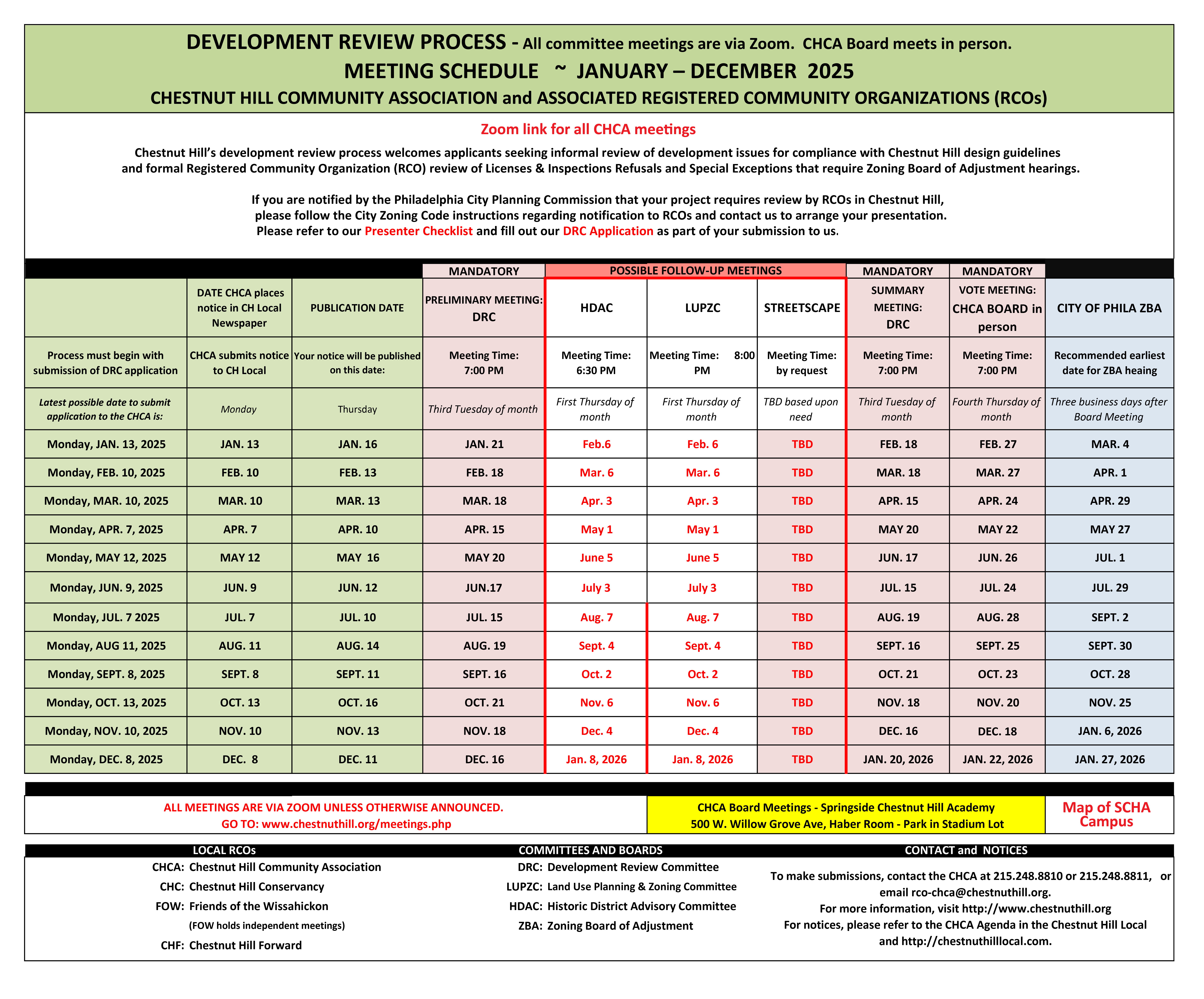Overview
When a developer proposes a project that requires a zoning variance or special exception, or if the project is subject to Civic Design Review, they must notify all relevant Registered Community Organizations (RCOs) for the project location (and near neighbors as well). Those RCOs are responsible for organizing a public meeting to gather community feedback and to decide whether to support the project with the Zoning Board of Adjustment (ZBA). The ZBA takes the RCO and community feedback under advisement when they make their decisions to allow or deny the variance or exception.
In cases where there is more than one RCO, the city depends on a single RCO to act as the Coordinating RCO to organize and schedule the public meetings. This simplifies the process for both the applicant and the community. In Chestnut Hill there may be as many as four relevant RCOs for a given project, and the Chestnut Hill Community Association is generally designated as the Coordinating RCO.
The Chestnut Hill Community Association has a Development Review Committee (DRC) that handles their review process. The DRC meetings also act as the official public meetings to satisfy the RCO process, and includes all relevant RCOs including Chestnut Hill Forward. Below is the schedule for the DRC meetings for 2025.

These meetings are open to the public via Zoom, and the projects that are currently under review can be found here.
Our Process
Two pieces of common feedback we’ve heard from the community about these projects and meetings is that they either didn’t know about them (and the entire RCO process and how it worked) or if they did, they didn’t have the ability to participate. Many residents face significant barriers to attending RCO meetings, such as work commitments, family responsibilities, or that they just don’t feel comfortable speaking at a meeting. This limited participation can lead to a skewed representation of community interests and potentially biased decision-making in the development review process.
To address these challenges and promote more inclusive community engagement, we’re implementing an online survey feedback system. This digital approach offers several advantages that can significantly enhance the participation rate and quality of feedback received. Online surveys provide flexibility, allowing residents to contribute their thoughts and opinions at a time and place that’s convenient and comfortable for them. By leveraging technology in this way, we can create a more democratic and representative system of community input, ensuring that a diverse range of voices are heard and considered in the development review process.
We’re working out the exact details of our process including what tools make the most sense and are most accessible to our members. Stay tuned for updates.
